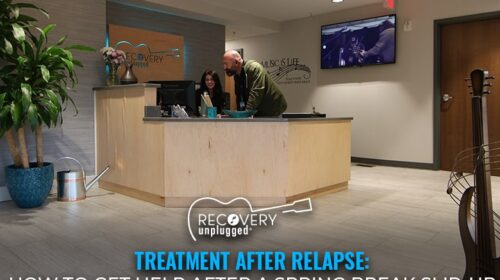International Women’s Day gives us a special opportunity to celebrate the strength, perseverance, and achievements of women across the globe while raising awareness of the persistent biases they continue to face in everyday life. It’s also a chance to examine the origins and sustaining factors that contribute to this marginalization and how it can impact mental health and potentially lead to substance abuse and addiction.
The theme of this year’s International Women’s Day is “Embrace Equity” and, while this may mean challenging barriers to equity across all aspects of culture and everyday life, Recovery Unplugged is also examining the unique mental health and substance use issues that women face to better influence the quality of women’s addiction treatment.
Prevalence of Substance Abuse among Women
The National Institute on Drug Abuse (NIDA) reports that over 19 million women engage in illicit drug use per year and that over eight million misuse prescription drugs per year. The agency also reports that opioid use disorder among women has quadrupled over the past decade. For most age groups, men have higher rates of use or dependence on illicit drugs and alcohol than women. However, women are just as likely as men to develop a substance use disorder. Additional data published by the NIDA finds:
- Marijuana may impair spatial memory in women more than it does in men, and teenage girls who use marijuana may have a higher risk of brain structural abnormalities associated with regular marijuana exposure than teenage boys.
- Women may be more vulnerable to the reinforcing effects of cocaine, with hormonal factors increasing vulnerability.
- Women report using methamphetamine because they believe it will increase energy and decrease exhaustion associated with work, home care, child care, and family responsibilities. They also report using the drug for weight loss, putting front and center two cultural factors that disproportionately affect women and lead to substance abuse.
- Women are often more likely to seek treatment for misuse of central nervous system depressants, like sedatives.
Women also outpace men in overdose death from antidepressants and other mental health-related medications. A greater risk of anxiety and sleep disorder among women may be inflating prescription rates and creating a higher level of opportunity for misuse and abuse among female patients by doctors.
Unique Factors Driving Addiction among Women
Women face an entirely unique and distinct set of circumstances that can render them more vulnerable to substance use disorder, including but not limited to:
- Lower tolerance and decreased ability to metabolize large amounts of drugs and alcohol
- Hormonal differences that render them more vulnerable to tolerance and subsequent dependency
- Increased vulnerability to external factors, like domestic violence, trauma, sexual assault, etc.
- Depression and anxiety over acute or persistent incidents of discrimination, harassment, stigma, and expectations associated with entrenched gender roles
Anxiety and fear over trauma and safety, and depression over gender-related stigma, discrimination, and marginalization, are viable factors that can lead to especially high rates of drug or alcohol use and abuse.
Gender-Related Barriers to Addiction Treatment
Developing more refined women’s addiction treatment resources includes identifying the current barriers to care. While the rate of women seeking treatment for substance use disorder has increased in recent years, men still far outpace women in annual treatment admissions. Data from the National Institutes of Health indicates that, by and large, women are more likely than men to face multiple barriers to accessing substance abuse treatment and are less likely to seek it to begin with. These barriers include everything from limited financial means to lack of logistical support to shame and stigma surrounding their condition.
A large portion of this disparity can be attributed to gender-related expectations and concerns. For example, many women who are pregnant or have young children do not seek treatment, or they drop out of their program early because they are unable to take care of their children; they may also fear that authorities will remove their children from their custody. On a macro note, women have historically been excluded or underrepresented in important research studies that can influence care policy.
The COVID Factor Still Persists
Women have historically been expected to take a more active role in child-rearing than men, and the COVID-19 pandemic has made this disparity glaringly obvious. The economic and health impact of the COVID-19 pandemic has hit women particularly hard. One of the most challenging parts of the pandemic has been the continued balancing of roles as the traditional caregiver to children and the working parent. A comprehensive study on COVID-19 workplace trends and behavior indicates that:
- Fifty-three percent of working mothers reported making less money now than before the pandemic started.
- Nearly 25 percent of working moms with children under 18 reported having to reduce their work hours to take care of children or a family member over the last year, compared to about working dads compared with about 17 percent of working fathers.
- Over 20 percent of mothers took a leave of absence to tend to household responsibilities.
- Men were more than three times as likely as women to be promoted at work over the year before the study, and working dads of children under 18 were five times more likely to be promoted than working moms.
- Nearly 25 percent of working moms said they have considered leaving the workforce permanently as a result of working during the pandemic, compared to just six percent of working fathers.
These figures represent an entrenched perception and antiquated expectations that have not only affected women’s financial health but also their emotional well-being. Financial issues are a common driver of stress-related substance use and, ironically, an impediment to care.
Accessing Effective and Compassionate Women’s Addiction Treatment
You should never have to worry about your gender getting in the way of your addiction treatment and recovery. If you or someone you care about is a woman battling substance use disorder, compassionate, effective, and culturally sensitive help is out there. Recovery Unplugged is acutely aware of the unique and distinct issues that drive addiction among women, as well as the barriers they encounter when they seek help for themselves or a female loved one. We offer treatment that helps you address these complex issues on a medical, behavioral, and lifestyle level.
Our medically assisted detox programs help you rebalance your brain chemistry and address your physiological tolerance to overcome cravings and withdrawal symptoms, and our multiple behavioral rehab options will help you address the root causes and sustaining factors associated with your substance abuse, whether they’re directly related to gender or not. We offer a full staff of compassionate, experienced, and qualified female clinicians and therapists along with gender-sensitive care options.
In an effort to mitigate the financial obstacles often faced by women looking for addiction treatment, Recovery Unplugged is in-network with most major insurance providers to help make care more affordable and accessible. Contact us for a full insurance verification and to start treatment.
International Women’s Day is an opportunity to observe the incredible strength, courage, and persistence of women everywhere. Make this year the day you assert your power over substance use disorder and get the help you need to reclaim your life. Learn more about how to celebrate and observe International Women’s Day.

























